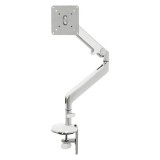Why Does The Smoke Alarm Go Off When I Cook?
Understanding the factors that cause a smoke alarm to activate during cooking is crucial for ensuring home safety and preventing unnecessary nuisance alarms. This article delves into the essential aspects of this issue, exploring the role of various factors in triggering false alarms and providing practical solutions to mitigate the problem.
### Location of Smoke AlarmThe location of the smoke alarm plays a significant role in its sensitivity to cooking fumes. Installing the alarm too close to the stove or oven can lead to false alarms, as the steam and smoke produced during cooking can easily reach the sensor. It is recommended to place the alarm at least 10 feet away from cooking appliances and in a central location within the kitchen.
### Type of Cooking ApplianceDifferent types of cooking appliances produce varying levels of smoke and fumes. Gas stoves tend to generate more smoke than electric stoves, while grilling and frying can also release significant amounts. Using a range hood or exhaust fan while cooking can help to remove smoke and reduce the likelihood of triggering the alarm.
### VentilationAdequate ventilation is essential for dissipating cooking fumes and preventing smoke buildup. Open a window or use a fan to create airflow in the kitchen. This will help to dilute the smoke and reduce its concentration in the air, making it less likely to set off the alarm.
### Sensitivity of AlarmSmoke alarms come with varying levels of sensitivity. Alarms with higher sensitivity are more likely to activate during cooking, while alarms with lower sensitivity may not detect smoke until it reaches dangerous levels. Consider the type of cooking you typically do and choose an alarm with an appropriate sensitivity setting.
### Maintenance of AlarmRegular maintenance of the smoke alarm is crucial for ensuring its proper functioning. Test the alarm monthly to verify that it is working correctly. Replace the batteries annually and clean the sensor regularly to remove any dust or debris that may interfere with its operation.
### Other FactorsOther factors that can contribute to false alarms include: burnt food, smoking cigarettes indoors, and using scented candles or air fresheners. Avoiding these activities in the vicinity of the smoke alarm can help to minimize the risk of nuisance alarms.
### ConclusionUnderstanding the essential aspects of why a smoke alarm goes off when cooking can help to prevent unnecessary nuisance alarms and ensure the safety of your home. By considering the location of the alarm, type of cooking appliance, ventilation, sensitivity of the alarm, maintenance, and other factors, you can minimize the likelihood of false alarms and maintain a safe and comfortable cooking environment.

Why Do Smoke Alarms Keep Going Off Even When There S No

How To Keep Smoke Detector From Going Off While Cooking Food Network Help Around The Kitchen

Why Do Smoke Alarms Keep Going Off Even When There S No

Why Do Smoke Alarms Keep Going Off Even When There S No

Air Fryer Sets Off Smoke Alarm What It Means And To Do

Can Steam Set Off A Smoke Detector Firefighternow

Why Is My Fire Alarm Going Off Cove Security
Do Air Fryers Set Off Smoke Alarms Quora

Why Is My Smoke Alarm Siren Sounding With No Orca

Why Is My Fire Alarm Going Off Rhode Island Restoration








